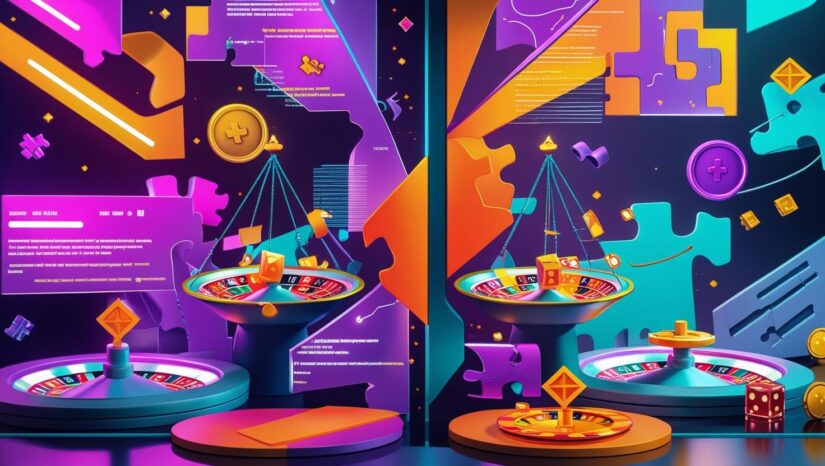Say you’re in a media lab, storyboarding an ad campaign for your coursework. The visuals are sharp, the slogan is catchy, and the color palette is on point. Then, halfway through, you realize the product is an online casino, and suddenly the assignment feels different.
This is the tightrope many communication, marketing, and media students will walk at some point in their careers.
Online casino promotions come with higher stakes. A phrase or image can influence spending habits, normalize risky behavior, or reach audiences who aren’t equipped to make informed decisions.
The good news is by understanding the ethical pitfalls and the creative opportunities, students can develop work that is both impactful and responsible.
The Allure and Weight of “no deposit bonus” Messaging
In the world of online casino promotions, terms like “no deposit bonus” or “free spins” sound harmless enough. On paper, it’s just a way to describe an offer that doesn’t require an upfront payment. But in practice, these words can pack a punch.
When combined with persuasive copywriting, fast-paced visuals, and emotional storytelling, such offers can seem risk-free or universally beneficial, even when they’re not. For students experimenting with marketing language, the challenge lies in using these terms as examples for learning not as uncritical endorsements.
It’s a balancing act: showcasing the mechanics of promotional language while still framing it within an ethical context.
Ethical Challenges in Gambling Promotion Content
1. Vulnerable Audiences
Young people are more responsive to emotional triggers in advertising than older demographics. Research has found that gambling ads are almost four times more appealing to viewers aged 11–24 than to older adults.
These stats underline the importance of understanding your audience. A campaign that feels harmless in the design studio can land very differently in the hands of a 15-year-old sports fan scrolling through social media on their smartphone, where access to an online casino is just a click away.
2. Regulation Gaps
In the U.S., a recent analysis of major gambling operators’ social media content found that most posts lacked problem-gambling warnings or helpline information. Even if a campaign meets the legal minimum, it might not meet the ethical one.
Opportunities for Responsible and Creative Communication
Turning Transparency Into a Storytelling Tool
Transparency doesn’t have to feel like a disclaimer slapped on at the end. Students can turn it into part of the creative concept. Imagine behind-the-scenes mini-docs showing how bonus wagering requirements work, or social graphics that break down the RTP (Return to Player) rate in an engaging, visual way.
Instead of hiding fine print, make it part of the story. This approach not only builds trust but also sharpens your skill in translating complex information for the audience.
Using Framing to Guide Interpretation
The same editing, framing, and sequencing techniques that make an ad persuasive can also make it responsible. By framing a “no deposit bonus” within a broader conversation (about budgeting for entertainment, decision-making, or media literacy), you shift the message from pure enticement to informed choice.
Leveraging Student Projects for Social Good
A class project on promotional design could easily double as a public awareness campaign. Students in film or photography could pair a fictional casino promotion with an educational companion piece explaining the risks.
Journalism students could investigate the impact of gambling ads on their own campus. Marketing students could prototype tools for more transparent ad copy.
Practical Tips for Ethical Promotion Design
| Area of Study | Ethical Opportunity | How to Apply It |
| Copywriting & Marketing | Avoid vague promises; add clear context | Use casino terms (e.g., “free spins”) as teaching examples, not blind slogans. Explain the conditions |
| Film & Video | Pair appealing visuals with balanced messaging | Integrate graphics explaining bonus wagering requirements or game volatility (RTP) |
| Reporting & Journalism | Investigate advertising impact and audience perception | Include real data from trusted sources, e.g., on addiction |
| Photography & Design | Avoid hyper-glamorized imagery that targets vulnerable groups | Focus on relatable, neutral visual narratives instead of only showing idealized scenes of big wins |
Final Thoughts
Online casino promotions will always be part of the marketing landscape, and communication students will inevitably encounter them. The question is not if you’ll work on such material, but how you’ll approach it.
By treating phrases like no deposit bonus as case studies instead of automatic endorsements, framing transparency as part of the creative process, and understanding the real-world impact on vulnerable audiences, students can elevate their work.
The goal is to sharpen creativity, so campaigns don’t just sell a product but also respect the audience. Done right, this approach protects the storyteller’s integrity. And in a crowded media world, integrity might be the most valuable currency you have.
